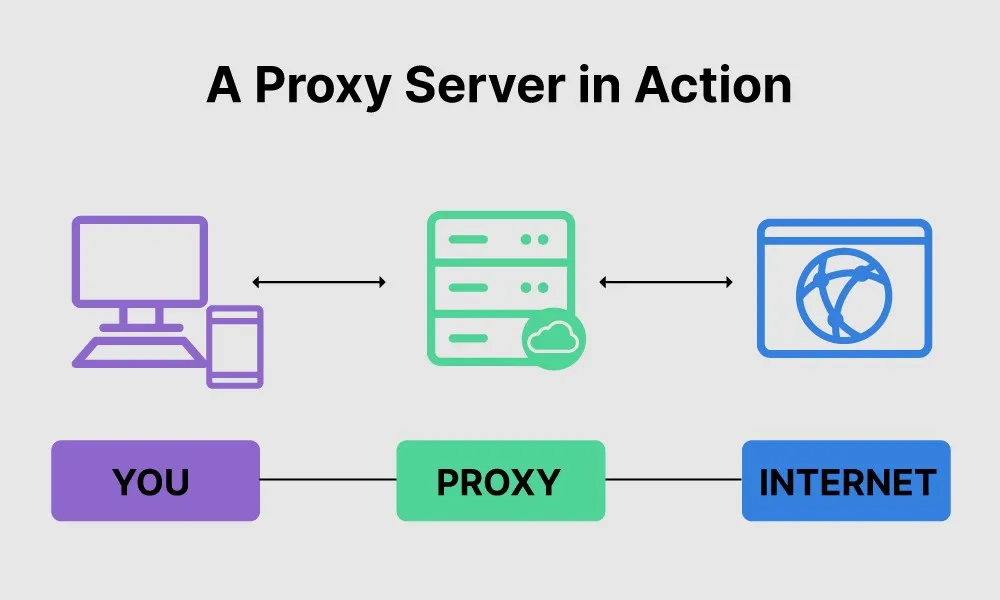Proxies are simple middlemen that sit between you and the resource you’re trying to access. When you send a request through a proxy, the proxy server makes the request and returns the result for you.
Regardless of which exact type of proxy you’re using, this general principle usually applies. Proxies do not normally place your traffic into an encrypted tunnel; they simply request resources on your behalf.
However, some proxies can actually encrypt your internet traffic, hiding it from your internet service provider (ISP). On the other hand, the owner of the proxy server might have access to this data, so you have to really trust the proxy provider if you want to use the service safely.
Proxies also change your IP address. In this way, the website you visit thinks you’re coming from another country, which helps you stay anonymous. However, the proxies that lack encryption might accidentally leak your IP address.
Interestingly enough, it’s also possible to block websites by using a proxy. If your company uses a proxy server for security, it can also choose which sites you can access based on the proxy’s IP address.
